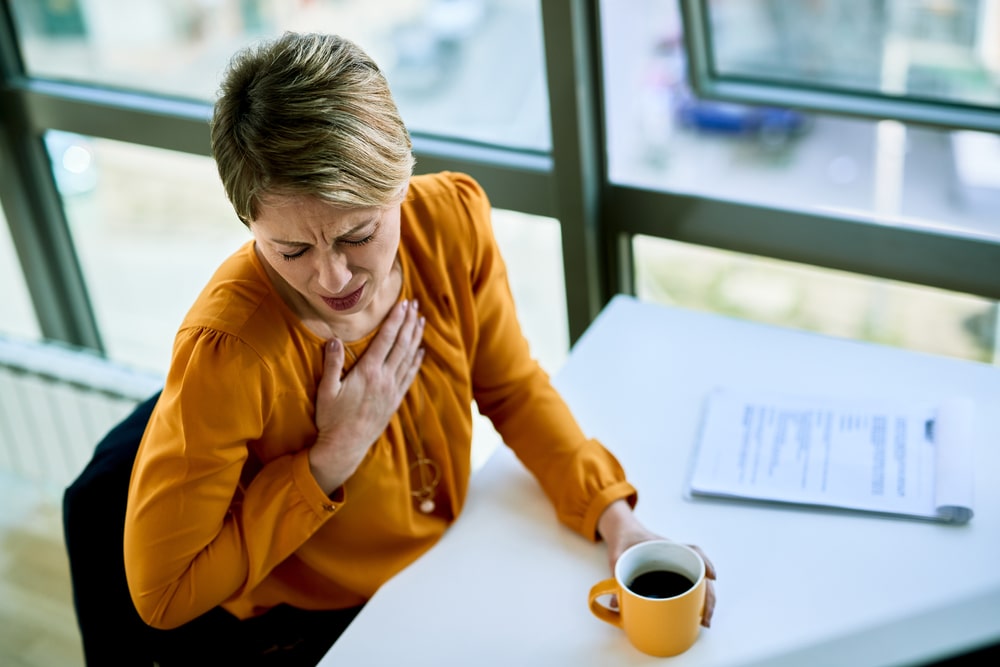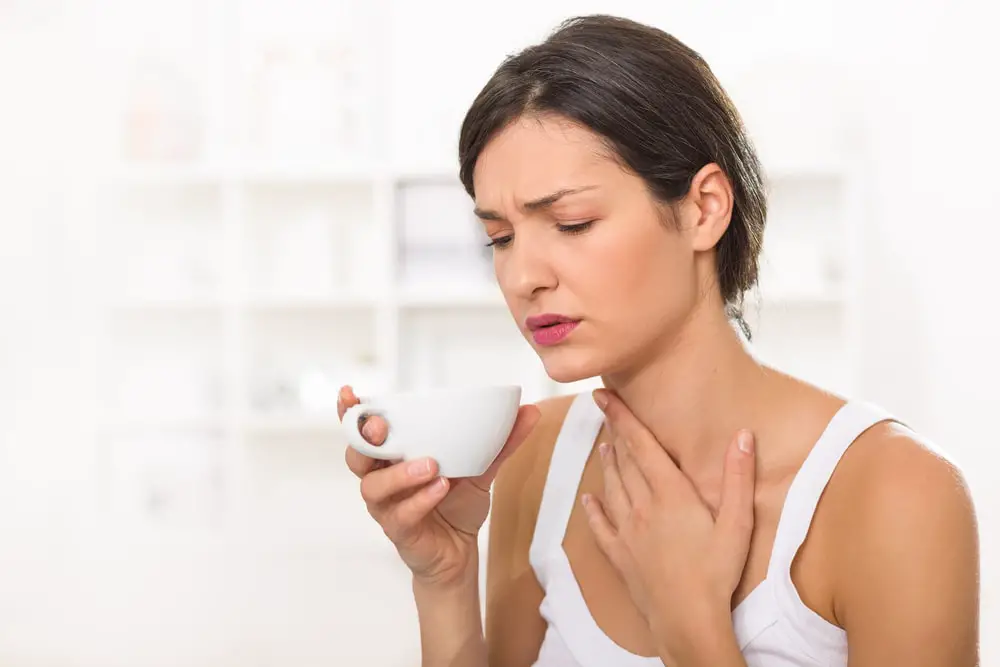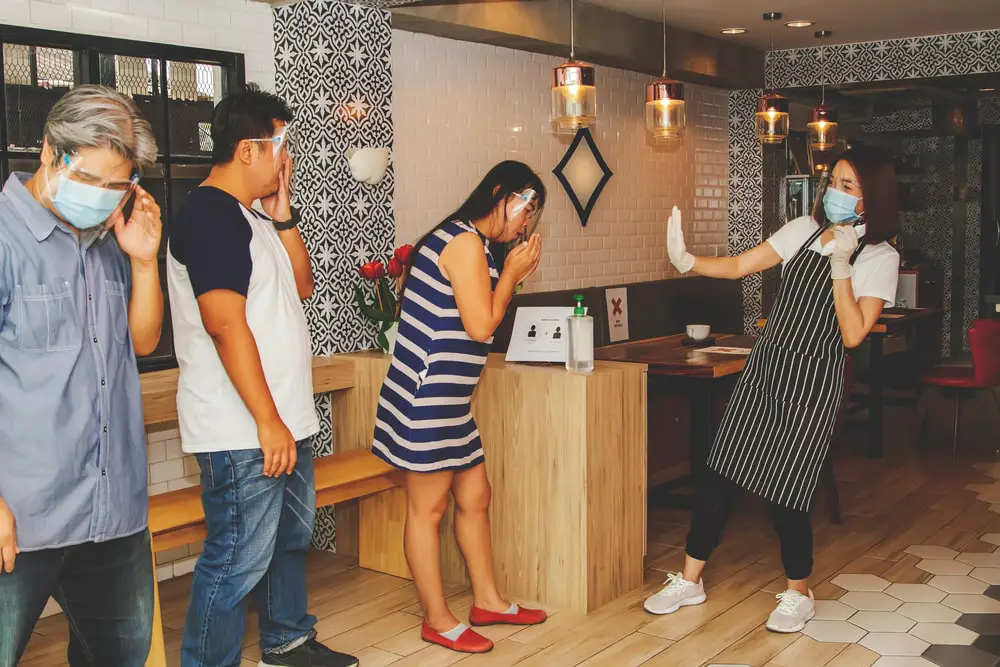There are many reasons why your cough is worse. However, many people find they cough more after drinking coffee. So does coffee make you cough?
The answer is yes, and this is quite common. A worsening cough is not one of the most common symptoms of caffeine in coffee with health. However, caffeine for some people will. Symptoms of caffeine in coffee for users often depend on the amount consumed, medical condition, predisposition to allergies, and several other factors. So, for some people, drinking coffee makes a cough worse. If you are in this situation, you should limit your coffee intake or consult your doctor.

Coffee has a lot of caffeine, so it gives users a feeling of relaxation and comfort, many people will have a feeling of coffee addiction and can’t be without it for a long time. However, in addition to the good effects such as increased energy, alertness, increased memory, and ability to concentrate. Coffee also makes users experience some unpleasant symptoms, most easily seen in the throat. However, these symptoms are not experienced in 100% of coffee drinkers.
The use of coffee impacts coughing because caffeine causes dehydration in coffee drinkers, which causes a dry throat. This can easily lead to coughing or make it worse in some people.
What Triggers Your Coughing?
Coughs are usually caused by mucus or foreign matter in your throat, so your body wants to push that substance out of your throat to them. Some people will suppress the feeling of coughing by clearing their throat, for others by coughing directly. A cough for a long time will be an acute illness. The cough usually lasts for two weeks and improves significantly after that. What triggers your cough?
There is a foreign substance in the throat.
Coughing is the mechanism your body uses to clear your throat. When your airways have a foreign substance obstructed there, such as mucus, smoke, or dust, your body will cough as a natural reflex to remove those substances from the airways.
Viruses and bacteria
Viruses and bacteria are the cause of acute cough. Because of the viral attack, your airways become inflamed. If you have a cough that was caused by a virus or bacteria, the cough will last for a long time, and it is straightforward to damage your throat permanently. Therefore, you need to take antibiotics to help.
Smoking and coffee
Smoking is a common cause of cough because the smoke will stay stuck in the throat for a long time. Usually, smokers will have a chronic cough that is easy to distinguish by the cough sound.
Coffee users have a cough because the caffeine in coffee absorbs water in the throat, making the throat dry leading to coughing. A smoking cough is usually a chronic cough with a distinctive sound. It is often called a smoker’s cough.
Can Coffee Irritate Your Throat?
Coffee can irritate your throat. In caffeinated coffee, this may be the cause of your temporary cough due to its effects after drinking coffee. However, in some cases, the caffeine in coffee will irritate your throat.
Consuming caffeine will give the body a feeling of increased energy, alertness, restlessness, anxiety or tension, irritability, trouble sleeping, dizziness, headache, dizziness, digestive disorders, muscle tremors, or even cough. These reactions occur after you drink coffee and last up to several hours. Many people think that coffee has nothing to do with your cough, but many studies prove that caffeine dehydrates the throat leading to dryness. This causes coughing and makes it worse in some people.

In addition, some people will develop a cough due to an allergy to the caffeine in coffee. This is rare, but it does happen. You are allergic to coffee if you cough and develop a rash, hives, diarrhea, nausea, vomiting, or stomach cramps after drinking coffee. You should limit your coffee intake. This allergic phenomenon usually appears within a few minutes of drinking coffee and disappears within 1-2 hours.
If you cough and do not fall into any of the above conditions, the chances are that the cause of your cough is not coffee, and you should find out other reasons.
How Come When I Drink Coffee, I Get Phlegm?
Phlegm is a type of mucus. Mucus is a type of substance that acts as a lubricant to help filter and protect the respiratory system. The mucous membrane that runs from the nose to the throat produces mucus to lubricate the airways.
However, your body will sometimes produce too much phlegm, making you uncomfortable and often coughing. Your lungs or your eating habits can cause the production of too much inertia. Too much phlegm will make your throat itchy and clog your throat leading to a lot of coughing.

In particular, caffeine in coffee is one of the causes of phlegm. Therefore, limiting coffee consumption is one of the ways to help you avoid having too much phlegm in your throat. Studies show that caffeine stimulates the lungs to produce more and thicker phlegm.
Coffee quickly causes dehydration, which also leads to the production of thick phlegm. Thick phlegm will make it difficult for your throat to clear, leading to an itchy throat, dry cough, and difficulty breathing.
So, if you often get phlegm from drinking coffee, you should limit your coffee consumption or make sure you stay hydrated.
Ways to deal with phlegm because you drink coffee
When you have chronic problems with phlegm, try the following:
Drink more water: Also, review the foods you consume that absorb water, such as coffee, alcohol, and some teas.
– Use a humidifier: This machine helps keep the throat and nose moist, limiting the production of mucus and phlegm.
Check the air: Ensure the air is free from excessive dust and other potential irritants.
– Use physiological saline nasal spray: This helps wash away phlegm and moisten the tissues in your nose and sinuses.
These remedies are also helpful if your mucus and phlegm problems progress to postnasal drip.
In cases where the phlegm is still profuse and unresolved, making your cough worse, you should consult your doctor for a complete diagnosis and treatment plan.